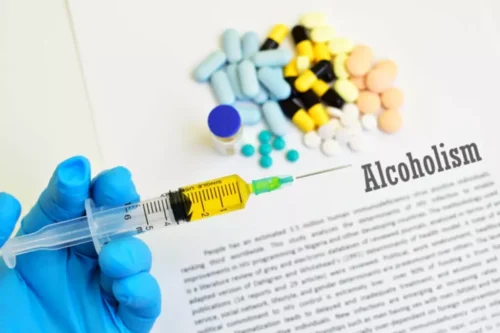How Long Does Marijuana Stay in Your System? Drug Test, Detox & Cure
21 Juni 2022 dans Allgemein | von fazli

It also has one of the highest detection windows for THC metabolites. A urine drug test can detect cannabis for 1-30 days after last consumption. It’s a wide window that varies depending on the frequency of use, dosage amounts, and biological factors. It’s important to note that drug tests can detect marijuana for varying lengths of time depending on the type of test (urine, blood, saliva, or hair) and the sensitivity of the test.

How Long Does Marijuana Stay In Your Blood?
The change in BMD was studied in men with prostate cancer who are taking androgen deprivation therapy. Prolia is an injection given every 6 months to treat osteoporosis in men, postmenopausal women, and people who take corticosteroid medicines who are at high risk for fractures. It is also used to increase bone mass and reduce fracture risk in people taking certain medicines for breast and prostate cancer.
Bottom Line on Weed Withdrawal Symptoms
People received either Prolia every 6 months or risedronate 5 milligrams daily for 1 year. It is also very important to be properly assessed by a mental health professional if you experience extended paranoia—especially if you have hallucinations or delusions. Ideally, this professional should have expertise in substance issues, such as an American Board of Addiction Medicine (ABAM)-certified physician or a psychiatrist.
What are the factors that affect how long weed stays in your system?
To learn more about marijuana addiction and treatment options, please contact Ark Behavioral Health today. Although trace amounts of THC may not produce a “high,” you may increase your risk of it being detected on a drug test. If you have a false-positive result, more detailed tests how long does weed stay in your system can determine if the result is caused by a different drug. You may test positive for marijuana if you regularly take other drugs that can interfere with a drug test. The half-life of a drug is the amount of time it takes to reach half of the maximum concentration in your system.
How Long Does Marijuana Stay In Your System?
More potent cannabis, which is higher in THC, may also stay in your system for longer. It has more than 100 metabolites, but the most significant ones are 11-OH-THC (11-hydroxy-delta-9-tetrahydrocannabinol) and THCCOOH (11-nor-9-carboxy-delta-9-tetrahydrocannabinol). In jurisdictions where cannabis is illegal, oral fluid may be used for roadside testing. One of the most abundant components in cannabis is a chemical substance called THC, which stands for delta-9-tetrahydrocannabinol. A new report from the UK finds that cannabis improves quality of life and provides other significant benefits in individuals suffering from PTSD.
- And lastly, it’s important to note that this article has been composed only as a GENERAL GUIDELINE.
- This is excellent news for those set to undergo a saliva test.
- The same goes for wax pens that contain delta 8 THC or delta 10 THC.
- Seeking professional help and support is crucial in addressing addiction issues effectively.
- As your body processes some of this old fat it can release THC into your body.
Keep in mind that everyone’s biochemistry is different, and thus outcomes will differ from person to person. In general, you don’t need to worry too much about blood tests if you use cannabis. They are a rarity, and as long as you have enough warning to “prepare” for the screening, you should be okay. For the specific purpose of cleaning your urine to eliminate THC metabolites, you can also try drinking excessive amounts of water to dilute your urine. However, you should note that this is rarely effective, and screeners can often tell that you have made an attempt to cover your tracks.
- Yes, Delta-9 THC can definitely cause you to fail a drug test.
- In some cases, marijuana users have experienced several weeks or months of withdrawal symptoms.
- If your urine is diluted too much, however, it will automatically invalidate the results and you will have to repeat the test.
- People who misuse alcohol also risk developing physical and psychological dependence and alcohol use disorder (AUD).
- But if it is ingested, the chemicals are broken down more slowly and may remain detectable longer.
- Prolia is a monoclonal antibody that binds to a specific protein on osteoclasts and decreases their activity.
Avocados and potatoes are one of the biggest natural sources of vitamin B3 (also known as niacin). Saliva marijuana tests are usually used by the police, through devices like the Dräger 3000. This makes the hair test https://ecosoberhouse.com/ really scary and accurate—it can detect even picograms of THC. Sign up for bi-weekly updates, packed full of cannabis education, recipes, and tips. Want to know more about how long marijuana stays in your hair?

There are many different kinds of drug tests available, which have varying levels of sensitivity and time periods to detect marijuana in your system. We can give an estimate of the amount of time marijuana remains in the body, but the most reliable way is to test yourself twice weekly until your first, morning urine sample tests clean. However, even this is not 100% foolproof because home drug detection kits have a higher upper limit of detection (usually 50 ng/mL) compared to some other medical testing kits. This means you may test negative, but a laboratory test may still show marijuana in your system. On average, urine tests can detect THC from three to seven days. That range will depend on how much marijuana you use and for how long.
80%-90% of the total dose of THC is usually excreted within the first week, however, the remaining 10%-20% can linger for much longer. The testing method used will ultimately dictate how long THC can be detected in one’s system. Detectable amounts of tetrahydrocannabinol (THC) may remain in the body for days or even weeks after use. Upon consumption of marijuana, THC is absorbed and stored by various body tissues and organs. The by-products formed by the breakdown are immediately cleared via urine. In a chronic user, the excretion rate of THC through urine is less, so it builds up in the liver.


 gefällt mir
gefällt mir